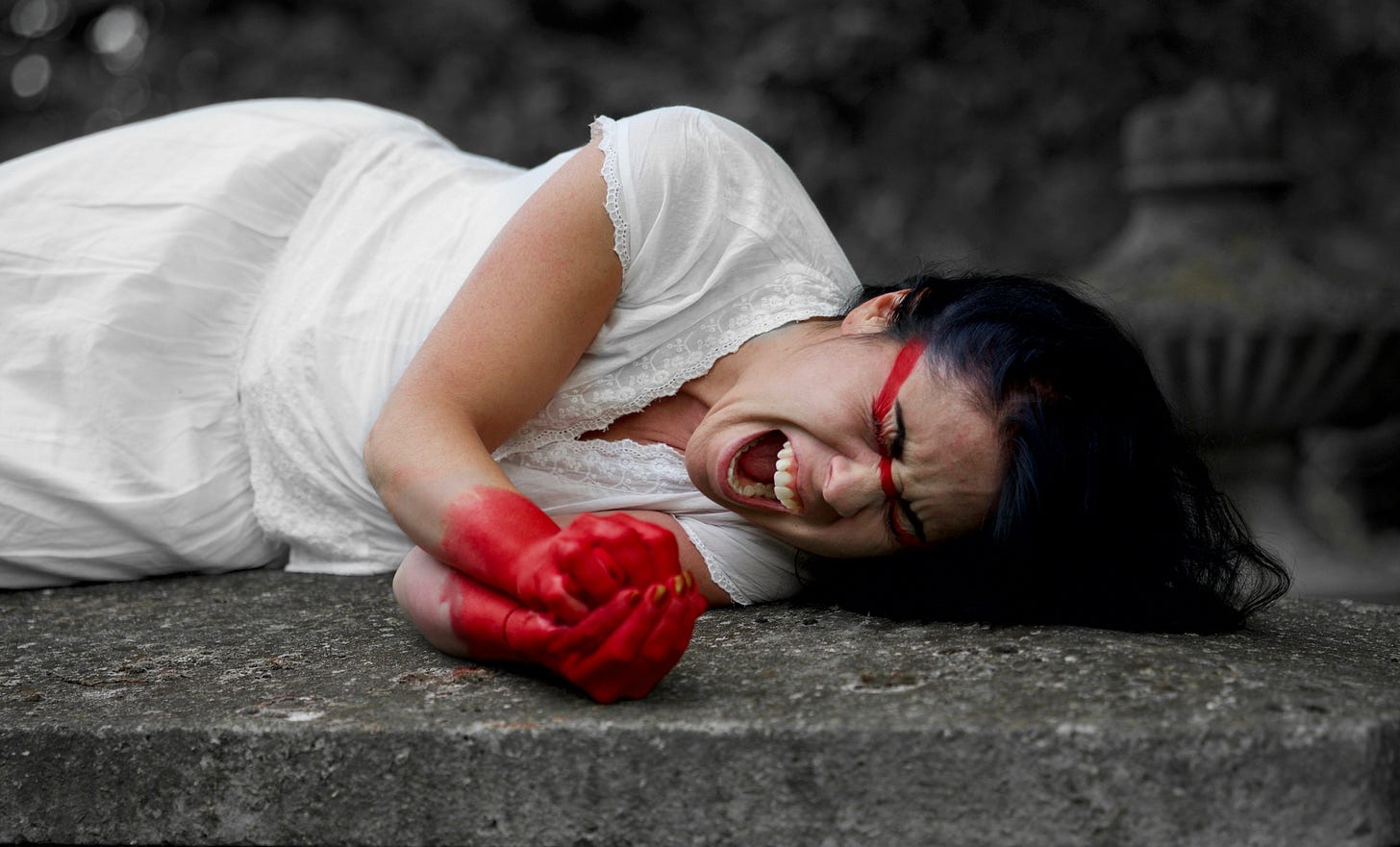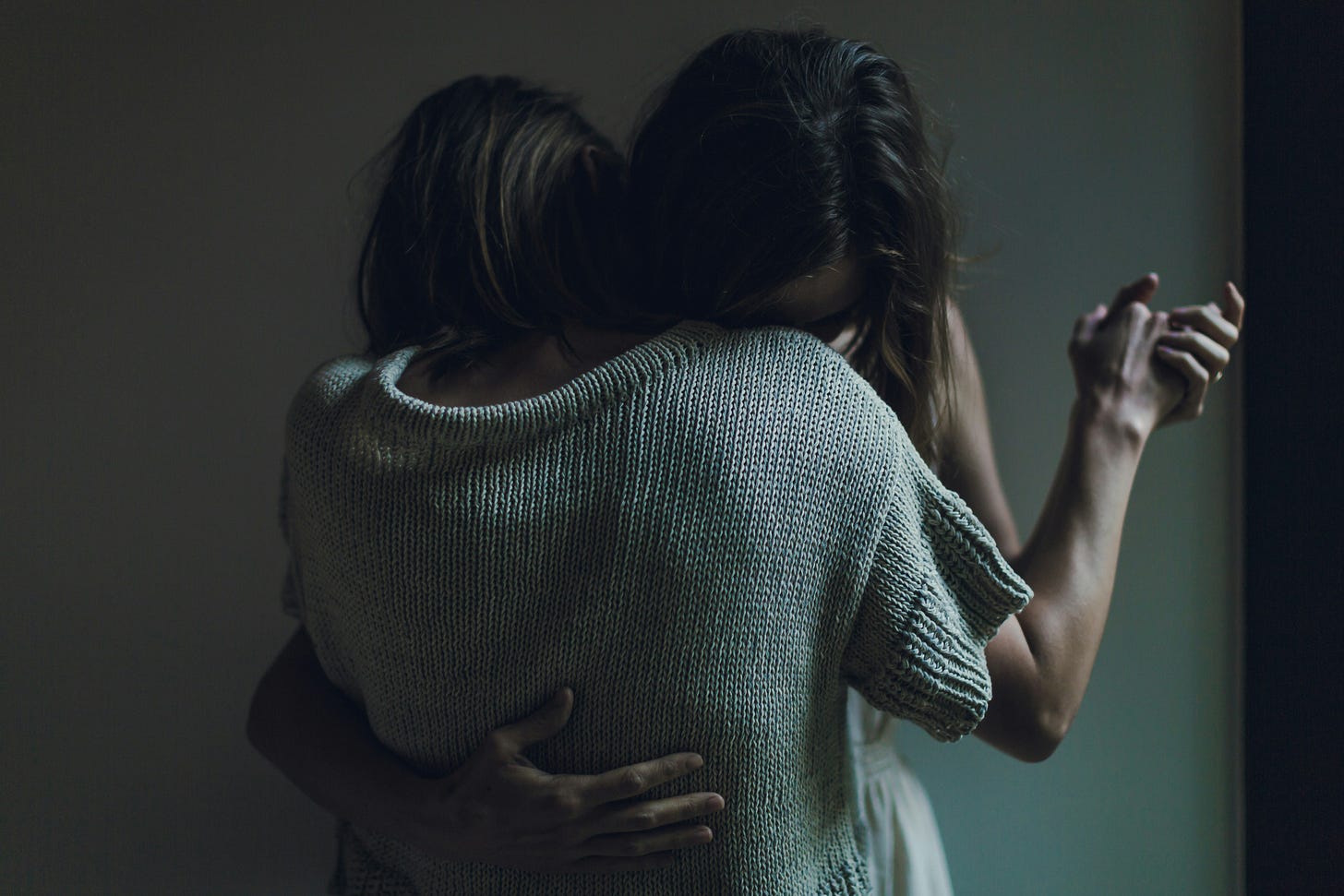When Silence Speaks: Confronting Death to Find Peace
Transforming generational pain into a journey of healing

“It kills me sometimes, how people die.”
― Markus Zusak, The Book Thief
Growing up, death was something far away, a concept I didn’t understand too well. I was sure it happened to other people in stories or just to others.
I felt we were invincible as a family—one of those strong, chosen people who could live for centuries, heck, forever. It’s just that nobody spoke about death around me, I didn’t feel it existed in our reality. You know what I mean?
My grandmother was a survivor.
She was a strong woman who had endured more than her share of life’s hardships. Somehow, her whole experience seeped through my inherited beliefs and patterns and became the silent center of my childhood trauma.
I’m not blaming her, but acknowledging the legacy of my fear and grief. Her story is intertwined with mine and will be forever and always because I feel her inside me still.
Yet I know I should let her go and live my own life because I am now capable of taking care of myself and my healing journey. I am working on it in my own way now, post-therapy and with support in place.
My grandmother had lived through the psychological torment inflicted by my grandfather, who was haunted by the ghosts of the Second World War. His untreated PTSD made him cruel towards her, and the doctors believed this prolonged stress contributed to her breast cancer. She had a double mastectomy and, miraculously, lived another nine years, cared for with love in our home.
But love and care weren’t enough to protect us from the silence that surrounded her illness.
My mother has always been a tower of strength.
You wouldn’t see in her ladylike stature how she could carry the weight of the world, but she did.
She was pregnant with my brother, working during the tough times of communism, managing the household, and taking care of her sick mother. I can’t even imagine how she did it all, but she did it silently, without ever sharing her struggles.
During this chaos, my young mind was left to deal with the silent shadow of death. No one talked about it or explained what was happening to my grandmother. I knew something was wrong, but the lack of communication left me scared and confused.
My imagination ran wild, and I believed my prayers could save my grandmother somehow. No, I was sure that if I prayed long enough, with bare knees on the cold tiles, in the darkness, in secrecy, I could save her. I was maybe 12 years old.
I felt so alone in my fear, disconnected from my family as they dealt with the daily struggles of caregiving.
I remember my self-induced trance, that feeling of kneeling on the cold tiles of our home, closing my eyes super tightly, my small body twisted in painful positions, thinking that my discomfort might lead to a miracle. I prayed in the darkness, hoping that I could save my grandmother. I felt so alone in my fear, disconnected from my family as they dealt with the daily struggles of caregiving.
The house was filled with hushed voices and the smell of medicine. My mother’s cries for more morphine for her mother were a constant reminder of the pain we all felt but rarely talked about. Old family friends, women dressed in black, visited often. Their presence was a sign of shared suffering, but their words did little to bridge the gap of my loneliness.

When my grandmother finally passed away, my world fell apart. I had never faced death so closely before.
The finality of it was a shock.
My sense of invincibility was shattered.
The fear of death, which had been a distant worry, became a constant, physical, and pestering presence in my life.
On my healing journey
Years later, as an adult during therapy, I began to unravel my trauma, to start the healing process. I realized that my fear of death was tied to those early years, to the silence that surrounded my grandmother’s illness and death.
The inner child in me, who felt so alone and powerless, finally found a voice. I was encouraged to dig deeper and remember. It was painful, but I still couldn’t cry. My crying had also been blocked in the depths of my little being, 25–30 years before.
Learning to sit with my grief has been painful but so necessary. I’ve started to allow myself to feel the pain, to process the loss, and to understand how it affected me. Such a long process. Patience to process thoughts and feelings had never been my forte, but now I was investing my time and my whole being into this healing journey.
My healing is ongoing. I have been acknowledging the past while trying to protect my own daughter from inheriting this fear.
I will share my story with my daughter when she’s old enough.
I want to create an altar for my grandmother, a space where we can honor her memory and acknowledge her pain. It will be a place where we can express our love and sorrow, a tangible way to confront the grief passed down through generations.
In telling my daughter this story, I hope to break the cycle of silence. I want her to know it’s okay to talk about difficult emotions, to grieve, and to seek comfort from others.
I want her to understand that we are safe, that we can take care of ourselves, and that being aware of our pain is the first step towards healing.
I don’t remember the last time I kissed my grandmother goodbye, but I will forever carry her memory with me. Through my own healing, I honor her unimaginable resilience. I let her go, finally, while becoming myself fully.
I hope to create a legacy of open communication and emotional honesty for my daughter and my sons too. We will turn our inherited trauma into a source of strength and connection, and learn together to be more compassionate as a family and as individuals.
Author’s note: It took me a long time and many drafts to put this together, post-therapy, finally crying, but feeling full and secure in my healing journey. I would like to learn if others benefit in any way from my story, or if they’ve gone through similar experiences. But sharing this is though, I am not expecting long discussions on this topic, these cannot be forced. Still, I would accept a conversation over tea anytime.
The story below written by
is a painting of feelings and memories with words. It brought back so many memories of my own childhood, losses, and death.





I really wanted to hug that 12-year-old u who put herself though discomfort in the hope god would hear her prayers. I have to say, I prayed loads as a kid - almost ritualistically.
Thank you for sharing this and I think you are doing a great thing by keeping open doors with your children.
What a moving piece. Getting all that out of you must feel like removing a weight. I applaud your efforts to talk about these things with your child. It’s a step in a good direction.